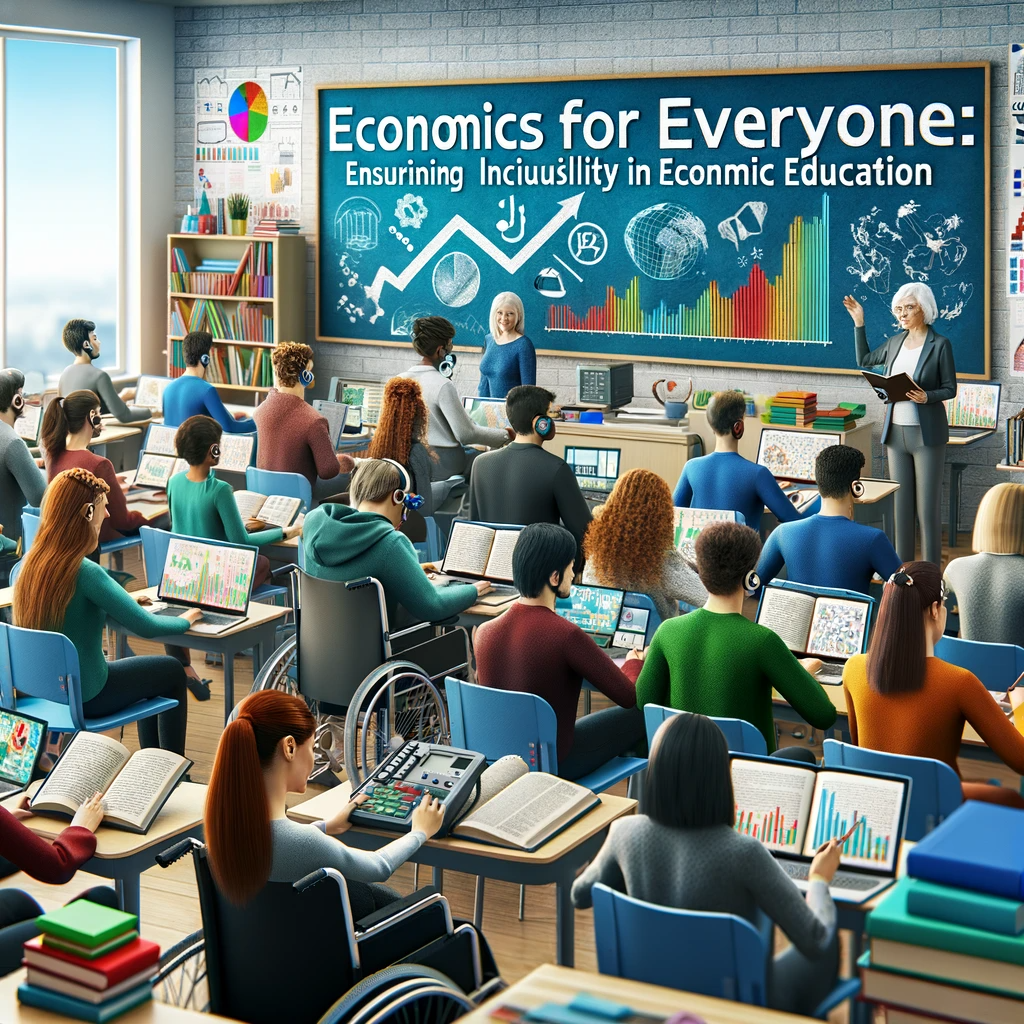Economics for Everyone: Ensuring Inclusivity in Economic Education
Economics, often perceived as a complex and elite subject, is a vital discipline that impacts every stratum of society. However, its education has historically been less accessible to diverse populations. This article delves into the importance of inclusivity in economics education and explores strategies to ensure that everyone, regardless of their background, has access to quality economics learning.

The Importance of Inclusivity in Economics Education
Inclusivity in economics is not just about fairness; it’s essential for the development of comprehensive economic theories and policies. A diverse range of perspectives enriches the study and application of economic principles, leading to more robust and equitable solutions to global economic challenges.
Challenges to Inclusivity in Economics Education
Despite its importance, inclusivity in economics education faces several barriers. These include socioeconomic disparities, cultural biases, gender imbalances, and educational inequalities that limit access and participation for many students.
Strategies for Fostering Inclusivity
- Curriculum Diversification:
- Incorporating a range of economic theories and perspectives, especially those from underrepresented groups, to broaden students’ understanding of the field.
- Case studies and examples should reflect a diverse range of socioeconomic, cultural, and geographic backgrounds.
- Accessible Teaching Methods:
- Employing a variety of teaching styles to cater to different learning needs.
- Utilizing technology to provide accessible learning materials and platforms for students with disabilities.
- Creating a Supportive Learning Environment:
- Establishing a classroom culture that values and respects diversity.
- Encouraging open dialogue and discussion that allows all voices to be heard.
- Outreach and Scholarships:
- Implementing outreach programs to attract students from underrepresented backgrounds.
- Providing scholarships and financial aid to ensure that economics education is accessible to all, regardless of economic background.
- Role Models and Mentorship:
- Highlighting diverse role models in economics to inspire students.
- Developing mentorship programs that support students from marginalized groups.
The Role of Technology in Enhancing Accessibility
Technology can play a pivotal role in making economics education more inclusive. Online courses, educational apps, and interactive tools can provide alternative access to learning materials, catering to a wide range of learners.
The Impact of Inclusive Economics Education on Society
Inclusive economics education doesn’t just benefit the students; it impacts society as a whole. By cultivating a diverse group of future economists, we ensure that economic policies and theories are reflective of and beneficial to a broader spectrum of the population.
Challenges and Future Directions
While strides are being made towards inclusivity, there is still a long way to go. The economics education community must continuously evaluate and adapt its strategies to ensure they are meeting the needs of an ever-diverse student population.
Conclusion
Economics for everyone is not just an ideal; it is a necessity for creating a just and equitable society. By implementing inclusive teaching strategies and breaking down barriers to access, we can ensure that the field of economics reflects and serves the diverse world it aims to explain and improve.

